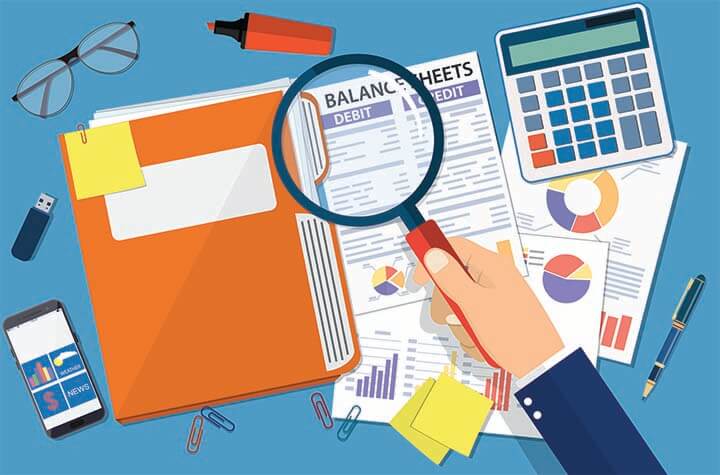Managing debt can be a significant challenge, but with the right strategies and careful planning, you can take control of your finances and work towards financial freedom.
The approaches and tips for managing your debts efficiently and effectively should be studied before making any decisions, highlighting the importance of planning.
Understanding Your Debt
Identifying Types of Debt
The first step in managing your debt is understanding the different categories of liabilities you have. Debts can be classified into various categories such as:
- Credit Card Debt: Typically has high-interest rates and can accumulate quickly if not managed properly.
- Personal Loans: Includes unsecured loans that can be used for various purposes and generally have fixed interest rates.
- Mortgage Debt: Debt related to purchasing property, usually with lower interest rates and longer repayment terms.
- Student Loans: Loans taken out to finance education, which can have various repayment options and interest rates.
Assessing Your Current Financial Situation
Taking Inventory of Your Debts
List all your debts, including the outstanding balance, interest rate, minimum monthly payment, and repayment term. Having a clear overview of all your debts will help you create a more efficient repayment plan.
Calculating Your Income and Expenses
Calculate your total monthly income, including salary, investment earnings, and other sources of income. Then, list all your monthly expenses, categorizing them into essentials (housing, food, transportation) and non-essentials (leisure, entertainment). This analysis will help identify areas where you can cut costs to free up more money for debt repayment.
Creating an Effective Budget
Setting Payment Priorities
Based on the analysis of your debts and expenses, establish payment priorities. Focusing on debts with the highest interest rates first can help reduce the total interest paid over time. Alternatively, you can choose to pay off smaller debts first to gain psychological momentum, using the snowball method.
Defining Financial Goals
Set clear and achievable goals for debt repayment. For example, you might set a goal to pay off a certain amount of debt within a year or completely eliminate a specific debt within six months. Clear and specific goals help maintain focus and motivation.
Reducing Expenses and Increasing Income
Cutting Unnecessary Spending
Examine your monthly expenses and identify areas where you can cut costs. Reducing spending on entertainment, dining out, non-essential subscriptions, and impulse purchases can result in significant savings that can be directed toward debt repayment.
Increasing Your Income
Look for opportunities to boost your income to speed up debt repayment. This might include taking on a second job, doing freelance work, selling items you no longer use, or renting out an extra room in your home. Any additional income can be applied directly to your debt payments.
Exploring Debt Consolidation Options
Consolidation Loans
A consolidation loan can combine multiple debts into a single loan with a lower interest rate and one monthly payment. This can simplify debt management and reduce the total interest paid.
Balance Transfers
If you have credit card debt with high-interest rates, consider transferring the balance to a credit card with a lower interest rate or a 0% introductory interest offer. This can help reduce the total interest cost and accelerate debt repayment.
Developing a Repayment Strategy
Avalanche Method
The avalanche method targets paying off debts with the highest interest rates first. After paying off the debt with the highest interest rate, move on to the next highest, and so on. This can save money in the long run by reducing the amount of interest paid.
Snowball Method
The snowball method focuses on paying off the smallest debts first, regardless of the interest rate. After paying off the smallest debt, apply the previous payment amount to the next smallest debt. This method can provide a positive psychological boost as you see debts disappear more quickly.
Staying Motivated and Informed
Regular Monitoring
Regularly review your budget and progress to ensure you are on track. Adjust your plan as necessary to accommodate changes in your income or expenses.
Continuous Financial Education
Stay informed about best practices in financial management and any changes in credit and debt policies. Attending financial workshops, reading personal finance books, and following financial blogs can provide valuable insights and help maintain your motivation.
Seeking Professional Help
Financial Counseling
If you are struggling to manage your debts, consider consulting a financial advisor. They can help develop a personalized repayment plan, offer budgeting advice, and explore payment options you may not have considered.
Credit Counseling Services
There are various credit counseling organizations that can offer additional assistance and resources to help manage your debts. These services can provide guidance on consolidation, refinancing, and debt reduction programs.
Effectively managing debt requires discipline, planning, and a proactive approach. By assessing your financial situation, reducing expenses, increasing income, and exploring payment options, you can develop a strategy that works for you.
Staying motivated and seeking professional help when necessary can also make a significant difference in your journey to debt repayment. With a solid plan and the determination to follow it, you can achieve financial stability and free yourself from debt.



